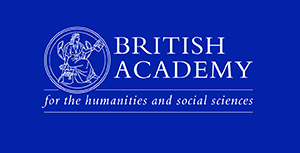Latest News Archive
Please select Category, Year, and then Month to display items
04 April 2024
|
Story Lunga Luthuli
|
Photo SUPPLIED
 Dr Juliet Kamwendo champions gender-inclusive climate action in Africa. Her expertise at the recently held AFR100 workshop highlighted vital steps towards sustainable and equitable development.
Dr Juliet Kamwendo champions gender-inclusive climate action in Africa. Her expertise at the recently held AFR100 workshop highlighted vital steps towards sustainable and equitable development.
Dr Juliet Kamwendo, Lecturer and Programme Director for Gender Studies in the Centre for Gender and Africa Studies at the University of the Free State, is spearheading efforts to integrate gender considerations into Africa's climate restoration agenda. Reflecting on her involvement, Dr Kamwendo stated, "This is particularly crucial, as women make up almost 50% of the population in Africa, and the depletion and degradation of land affect them disproportionately."
She recently served as a gender expert at the AUDA-NEPAD AFR100 workshop in Ouagadougou, Burkina Faso, from 25 to 29 March 2024. This initiative aims to restore forests and degraded land across Africa by 2030, with a focus on gender equality.
The workshop emphasised the integration of gender perspectives into the AFR100 project, acknowledging the disproportionate impact of land degradation on women. Dr Kamwendo's expertise highlighted the need to empower women in climate change interventions, addressing existing gender inequalities exacerbated by environmental degradation.
“Women – who are primarily responsible for household food security and water provision – bear the brunt of environmental degradation, leading to increased workloads, reduced income opportunities, and heightened vulnerability to climate-related disasters. Furthermore, the loss of forest cover and biodiversity further exacerbates the challenges faced by women, particularly in rural areas where they depend heavily on natural resources for their livelihoods,” added Dr Kamwendo.
Her participation highlights academia's crucial role in fostering inclusive and sustainable development, emphasising interdisciplinary collaboration to tackle complex environmental challenges. Through initiatives such as AFR100, stakeholders are working towards a more resilient and gender-responsive future for Africa.
Dr Cawood awarded prestigious British Academy Newton Advanced Fellowship
2016-08-02


“I am absolutely thrilled to be associated with such esteemed organisations as the Newton Fund and the British Academy.” This is what Dr Stephanie Cawood, from the Centre for Africa Studies (CAS) at the University of the Free State (UFS), had to say on being awarded a prestigious British Academy Newton Advanced Fellowship. It is part of the United Kingdom’s (UK) Official Development Assistance (ODA).
Grant will assist research on the meaning of museums, monuments, spaces, and discourse
She received a grant of £62,904 (R 1,177,949.35), that will enable her to conduct research that will compare how liberation struggles have been memorialised in South Africa and Uganda. The focus will be on museums, monuments, spaces, and discourse.
The idea is to analyse the relationship between memory, space, and power, said Dr Cawood. The project will run over three years, and will involve comparative fieldwork between liberation movements in South Africa and Uganda. Dr Johnathan Fisher from the International Development Department at the University of Birmingham will be Dr Cawood’s research partner. “Building a research network between the institutions involved is an important aspect of this research,” said Dr Cawood.
Fellowship will enhance international footprint and collaboration
“I believe it will contribute significantly to my intellectual engagement, career advancement, and international footprint”.
“I believe it will contribute significantly to my
intellectual engagement, career advancement,
and international footprint”
The award also has the potential to further relations at a broader level between the UFS and the University of Birmingham. It will also strengthen a collaborative relationship between the CAS and International Development Department.
The British Academy is the UK’s national body for championing the humanities and social sciences, and counts many world-leading scholars and researchers among its ranks.